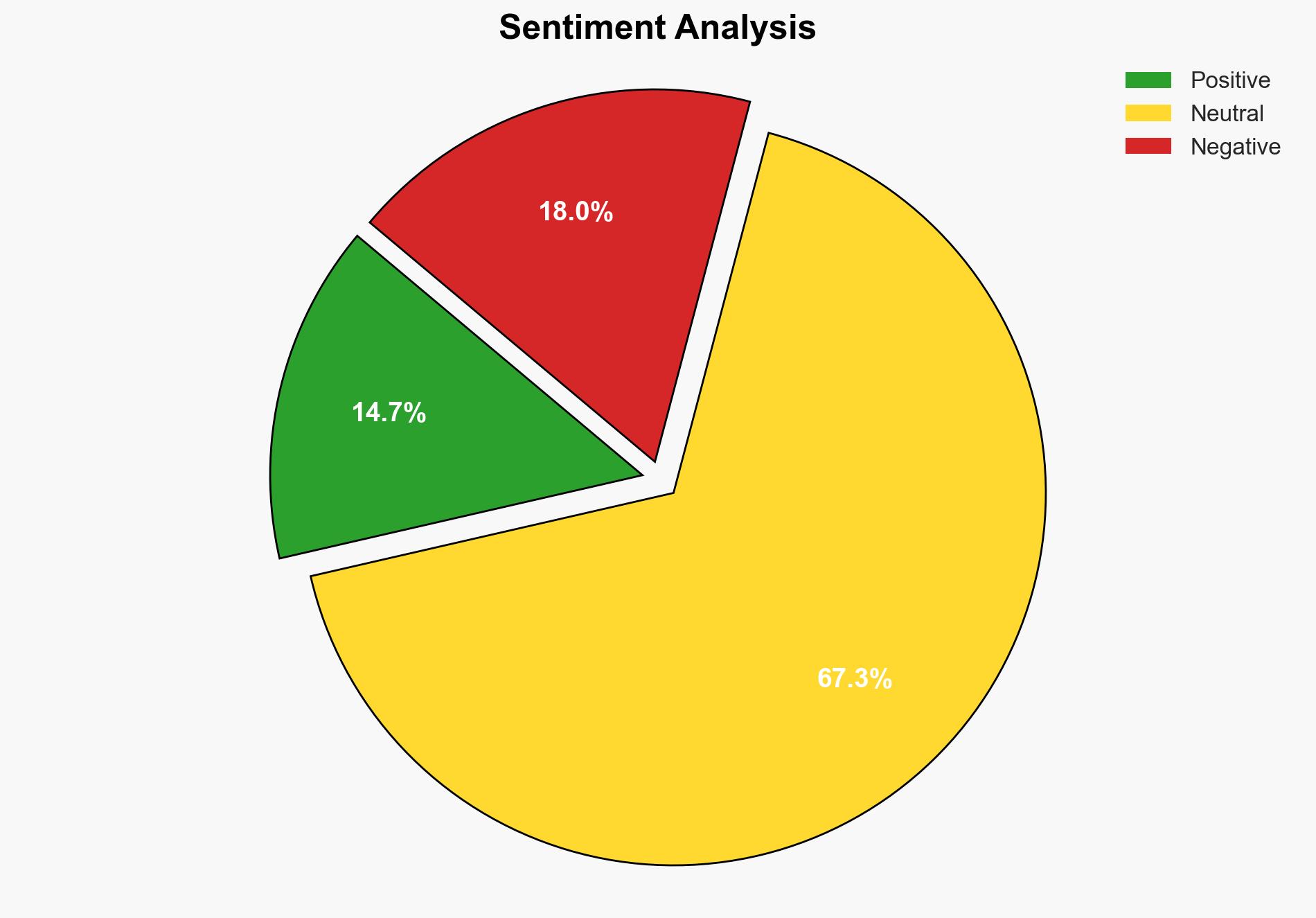Trump Prompts US Allies To Reopen Nuclear Weapons Debate – International Business Times
Published on: 2025-03-28
Intelligence Report: Trump Prompts US Allies To Reopen Nuclear Weapons Debate – International Business Times
1. BLUF (Bottom Line Up Front)
Recent actions and rhetoric by Trump have prompted US allies to reconsider their nuclear weapons policies. This development threatens to undermine existing non-proliferation treaties and could lead to increased nuclear proliferation, particularly among US allies who feel insecure under the current US security assurances. Immediate diplomatic engagement and strategic reassurances are recommended to prevent destabilization.
2. Detailed Analysis
The following structured analytic techniques have been applied for this analysis:
General Analysis
Trump‘s criticism of NATO and inconsistent foreign policy statements have shaken the confidence of US allies in the security umbrella provided by Washington. This has led to fears of nuclear proliferation as allies consider developing their own deterrents. The strategic environment is further complicated by tensions in Europe, the Middle East, and South Asia, where conflicts and crises are prevalent. Analysts from various institutes, including Byong Chul Lee, Heloise Fayet, Artur Kacprzyk, and Sye Ali Zia Jaffery, highlight the increased risk of proliferation and the potential for allies to seek independent nuclear capabilities.
3. Implications and Strategic Risks
The potential for nuclear proliferation among US allies poses significant risks to global and regional stability. The lack of confidence in US security commitments could lead to a breakdown of the current non-proliferation regime. This scenario increases the likelihood of nuclear arms races, particularly in regions with existing tensions such as the Korean Peninsula and Eastern Europe. Economic interests could be adversely affected by increased military spending and potential sanctions on nations pursuing nuclear capabilities.
4. Recommendations and Outlook
Recommendations:
- Engage in diplomatic efforts to reassure allies of US security commitments and strengthen NATO alliances.
- Promote dialogue on arms control with global powers, including Russia and China, to reduce nuclear tensions.
- Enhance non-proliferation treaties and frameworks to address emerging threats and technological advancements.
Outlook:
Best-case scenario: Successful diplomatic engagement leads to renewed confidence in US security commitments, preventing nuclear proliferation among allies.
Worst-case scenario: Failure to reassure allies results in multiple nations pursuing nuclear capabilities, leading to regional arms races and increased global instability.
Most likely scenario: Continued uncertainty prompts some allies to explore nuclear options, but significant proliferation is delayed by diplomatic efforts and international pressure.
5. Key Individuals and Entities
The report mentions significant individuals such as Trump, Byong Chul Lee, Heloise Fayet, Artur Kacprzyk, and Sye Ali Zia Jaffery. These individuals are influential in shaping the discourse on nuclear proliferation and international security dynamics.





